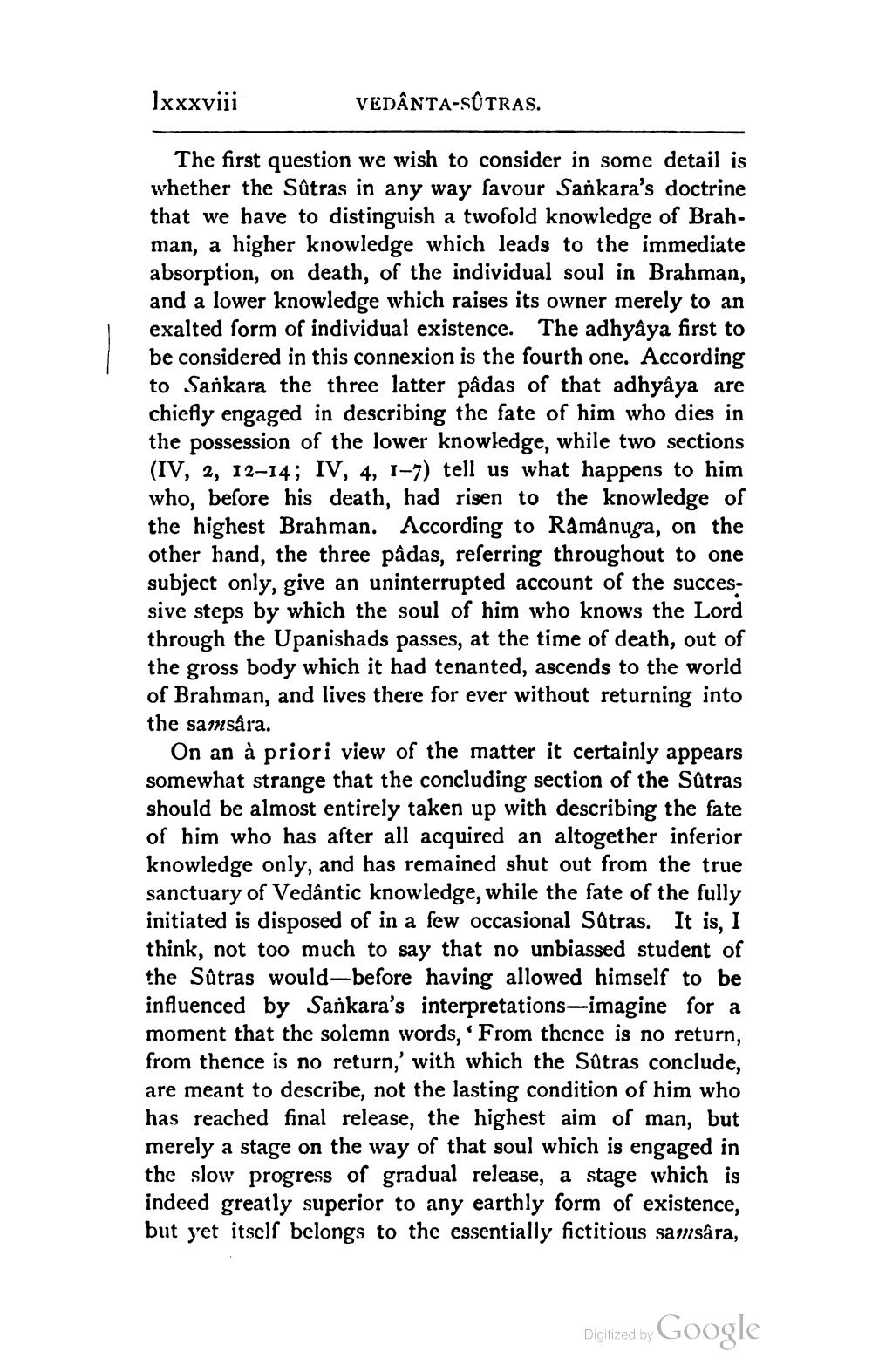________________
Ixxxviii
VEDÂNTA-SÛTRAS.
The first question we wish to consider in some detail is whether the Sûtras in any way favour Sankara's doctrine that we have to distinguish a twofold knowledge of Brahman, a higher knowledge which leads to the immediate absorption, on death, of the individual soul in Brahman, and a lower knowledge which raises its owner merely to an exalted form of individual existence. The adhyâya first to be considered in this connexion is the fourth one. According to Sankara the three latter pâdas of that adhyâya are chiefly engaged in describing the fate of him who dies in the possession of the lower knowledge, while two sections (IV, 2, 12-14; IV, 4, 1-7) tell us what happens to him who, before his death, had risen to the knowledge of the highest Brahman. According to Ramânuga, on the other hand, the three pâdas, referring throughout to one subject only, give an uninterrupted account of the successive steps by which the soul of him who knows the Lord through the Upanishads passes, at the time of death, out of the gross body which it had tenanted, ascends to the world of Brahman, and lives there for ever without returning into the samsâra.
On an à priori view of the matter it certainly appears somewhat strange that the concluding section of the Satras should be almost entirely taken up with describing the fate of him who has after all acquired an altogether inferior knowledge only, and has remained shut out from the true sanctuary of Vedāntic knowledge, while the fate of the fully initiated is disposed of in a few occasional Satras. It is, I think, not too much to say that no unbiassed student of the Sûtras would-before having allowed himself to be influenced by Sankara's interpretations-imagine for a moment that the solemn words, From thence is no return, from thence is no return,' with which the Sutras conclude, are meant to describe, not the lasting condition of him who has reached final release, the highest aim of man, but merely a stage on the way of that soul which is engaged in the slow progress of gradual release, a stage which is indeed greatly superior to any earthly form of existence, but yet itself belongs to the essentially fictitious samsara,
Digitized by Google




